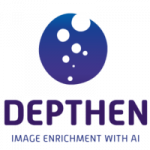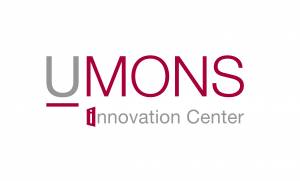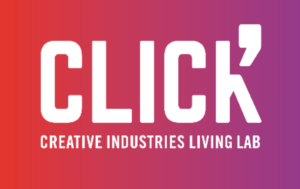Artificial Intelligence (AI)
Today, artificial intelligence (AI) is the centre of attention and is causing a buzz in the media. Everyone seems to agree that if the world economy does not keep up with AI, it will inevitably lose competitiveness. And yet, realistically, things are not so simple. Even though some are more advanced than others in thinking, the path to AI remains strewn with pitfalls.
How can you access the right technologies? How can you analyse the real opportunities that AI opens for your business? How can you develop tools adapted to your needs?
–> Investigating the right solutions and developing techniques responding to specific industrial problems is precisely one of the missions of the University.
From understanding industrial needs to facilitating the transfer of innovative solutions to the economic world, UMONS is committed to developing this entire field. Indeed, AI is an area in which it is crucial that research and economic structures maintain their close affiliation so that they can keep up with AI’s fast evolution.
Today, UMONS has more than 9000 students registered on more than 150 courses from Bachelor to PhD, on our two UMONS sites, Mons and Charleroi. It also has more than 900 researchers, nearly a third of whom are confronted with AI in their work.
About fifteen research departments at the Faculties of Engineering (FPMs – also known as “the Polytech”), Science (FS) and Psychology and Education (FPSE) use and develop AI technologies. Their diverse projects focus on the development of AI in many fields of application, such as energy, logistics, multimedia, smart cities, health, and even smart farming.
UMONS is currently collaborating on more than 40 AI-focused research projects with private partners, and has more than 100 researchers, post-docs and professors working in the domain.
Some examples of current AI projects at UMONS
H2020 Interactive Grounded Language Understanding (IGLU): Grounded language understanding research is a real challenge in the field of AI. The IGLU project brings together scientists from 8 partner institutions (including UMONS, the Université de Sherbrooke, and the Mila artificial intelligence research institute in Montreal), as well as experts in speech and language technology, deep learning, neuromorphic computing, affective computing and developmental robotics.
The project is about making the link between understanding natural language and understanding the physical environment in which AI must act. In this way, AI is able to answer questions about the environment in which it operates, and more precisely, in various languages (automatic translation). These advances will ultimately lead to both the development of robots that interact more securely with people in their natural environment and a more transparent AI.
AI to detect and aid in breast cancer diagnosis: UMONS has two PhD theses currently in progress which focus on improving the diagnosis of breast cancer and optimising its treatment by predicting the tumour’s response to chemotherapy treatments. These projects are part of a larger research group that is developing AI algorithms specific to medical imaging issues (osteoporosis, cancer, scoliosis, etc.).
Win²WalMobFaceNet (in partnership with the company MoodMe): The project aims to develop artificial intelligence modules using neural networks, which analyse the face by giving various information such as the person’s age, sex or emotional state. The modules must also be able to operate, without an internet connection, on smartphones which have limited storage and computing capacities. The results must be provided in real time, while preserving the security of the data, which is only processed on smartphones and which will not be sent to any remote server. Find out more about the project in the Regional IT article.
TEDDI (FNRS): This research project focuses on the development of tools to help doctors diagnose mental disorders in children based on brain data, by exploiting the potential of AI and machine learning in particular. This project is part of the general context of explainable artificial intelligence. The objective is therefore to develop algorithms to aid in the diagnosis of interpretable psychiatric disorders. Find out more about the project in the Regional IT article.
 COLORAMAP (ERC): The objective of this project is to better understand and characterise linear dimensional reduction techniques. In addition to compression, this size reduction can automatically extract relevant information. These new technologies have applications in various fields (social network analysis, recommendation systems, automatic background separation on videos, automatic separation of sound sources, etc.).
COLORAMAP (ERC): The objective of this project is to better understand and characterise linear dimensional reduction techniques. In addition to compression, this size reduction can automatically extract relevant information. These new technologies have applications in various fields (social network analysis, recommendation systems, automatic background separation on videos, automatic separation of sound sources, etc.).
E-Cloud (in collaboration with ORES, RESA, ULiège, NETHYS, IDETA, SPI, EOLY and N-SIDE): This project focuses on developing an AI tool to predict the renewable wind or photovoltaic production for the following day, while also providing different customers a consumption profile representative of their behaviour for each period considered to give them the information they need to adapt their consumption to local production.
DGO3 Road Step (in collaboration with Arsia, ULiège and CTA): This project aims to develop a network of decision support tools for monitoring herds in fields. The Internet of Things (IoT) is used to study the animals’ behaviour, growth and health. These decision support tools, based on AI methods, can predict diseases in a herd.
In recent years, AI-related activities at UMONS have intensified and have led to the creation of three new spin-offs which focus on the analysis of sound, gestures and images: Hovertone, iTtention and Depthen.
These spin-offs join ACAPELA, a company which has been active for over 20 years in speech technologies, and more specifically in the creation of personalised voices.
Now to put a little spotlight on these young spin-offs :
Founded in 2016, Hovertone specialises in the production of interactive technological installations. In May 2019, Hovertone launched the AURA project, a hybrid interactive experience on the theme of sustainable development, at the Cité des Sciences et de l’Industrie, in Paris. This installation materialises a visitor’s discussion with artificial intelligence into a physical, visual and connected experience, raising awareness of the United Nations’ SDGs.
 iTtention was also created in 2016. It focuses on predicting visual impact and has developed an AI that automatically predicts the places that will attract human attention, even unconsciously, on any type of communication medium: websites, advertisements, brochures, packaging, planograms, magazines or videos. The tool quickly optimises the visual efficiency of communications, without human investment, in order to increase their impact on the intended target with innovative and objective metrics. Ittention is thus able to help its clients adapt their communications before they are on the market to avoid visual impact errors and to ensure that key elements are quickly visible to the target.
iTtention was also created in 2016. It focuses on predicting visual impact and has developed an AI that automatically predicts the places that will attract human attention, even unconsciously, on any type of communication medium: websites, advertisements, brochures, packaging, planograms, magazines or videos. The tool quickly optimises the visual efficiency of communications, without human investment, in order to increase their impact on the intended target with innovative and objective metrics. Ittention is thus able to help its clients adapt their communications before they are on the market to avoid visual impact errors and to ensure that key elements are quickly visible to the target.
Created in 2019, Depthen offers image and video analysis tools for indexing and media production, as well as transparent access to the most advanced AI and deep learning technologies for the enrichment of visual content and video streams with very detailed descriptive metadata (objects, environments, people, emotions, etc.). This increases the value of multimedia resources, uncovers hidden treasures, considerably reduces the costs of producing new content, and imagines new formats.
The Master’s courses in Computer Science and Engineering now have three new specialist focuses dedicated to artificial intelligence, thus allowing UMONS the opportunity to contribute a considerable number of young qualified graduates to the job market.

Computer Engineering and Management
-
ScheduleDaytime schedule
-
ECTS Credits120
-
LanguageFrench

Electrical Engineering
-
ScheduleDaytime schedule
-
ECTS Credits120
-
LanguageEnglish

Computer Science
-
ScheduleDaytime schedule
-
ECTS Credits120
-
LanguageFrench
UMONS has also been able to respond to industrial demand requiring advanced AI training for its teams. In 2018, the University introduced a new programme in AI for participants to be trained on an evening and weekend schedule.
The Graduate Certificate in Artificial Intelligence, “Hands on AI”, is made up of a 5-credit module, which is taught in the evenings, and a 5-credit workshop-type module, which is taught at the weekend by experts in the field. These modules focus on concrete projects, as well as practical and technical challenges integrating various AI methods, including Deep Learning.
The first module is divided into a series of application challenges and a cycle of seminars (free and open to all). For example, the three application challenges proposed for 2019-2020 were:
- AI for image analysis: object detection and localisation
- Reinforcement learning and deep reinforcement learning for video games
- AI for time series analysis and forecasting.
The second module takes place over a weekend, in the field, to focus on the realisation of an ambitious team project. Participants are supervised by both technical coaches and project management/design thinking coaches (UMONS and Accenture).

Intelligence Artificielle (Hands on AI)
-
SchedulePart-time and evening courses
-
ECTS Credits10
-
LanguageFrench
UMONS is also at the heart of a rich network, and thus participates in many initiatives in the field of AI, in close collaboration with many partners. The university maintains a strong link with its associated research centres. These constitute the UMONS Innovation Centers, a unique alliance in Belgium which enables fundamental, strategic and applied research to be carried out. This network includes the Multitel Research Center, active in many AI research projects, as well as CLICK’, the Walloon living lab dedicated to technologies and creative industries, among others.
Created as part of the FEDER DigiSTORM project portfolio, CLICK’ is the chosen partner for project leaders wishing to develop innovative products and/or services through the use of new AI technologies. Largely inspired by the principles of Design Thinking, the working methodology of CLICK’ is based on a succession of exploration, experimentation and evaluation phases (in the laboratory and/or in the field), all of which have been co-created and receive feedback from end users (user-experience).
Through active participation, UMONS has also recently become involved in the various AI ecosystems, both at federal and regional level, by joining the AI network, participating in discussions on the AI4Belgium strategy and drafting the federal report.
Finally, it should be noted that, since 2017, UMONS has collaborated with UCLouvain, ULiège, Multitel and CETIC to set up the “Deep Learning Academy”, the aim of which is to organise meetings between universities, research centres and companies (particularly SMEs) in order to share AI experiences and good practices through the presentation of concrete cases. These meetings are open to all interested manufacturers who wish to attend (registration via this link).
In this context, another initiative to point out is the creation of a portal to Deep Learning tools, which have been tested and assessed by Walloon universities and research centres. Detailed Jupyter notebooks importing all the necessary toolboxes in Google Colab have thus been made available to the public. White papers presenting concrete cases, to which the tools have been applied, are also available.












